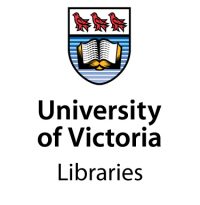An M.A. thesis in the School of Environmental Studies, by Tracey Angela Proverbs
https://dspace.library.uvic.ca/handle/1828/11086
Abstract:
In the territory of the Gwich’in First Nation, in Canada’s Northwest Territories, environmental, sociocultural, and economic changes are affecting relationships between communities and the land and water. In this thesis, I used two research projects to explore the impacts of social-ecological change in Gwich’in territory by examining cumulative impacts in the cultural landscape, and determinants of access to fish and well-being. In the first part of my MA, I used spatial overlay analysis to quantify and map: 1) cultural feature intensity, 2) cumulative environmental disturbance, and 3) overlap between disturbances and cultural features. I also interviewed four regional cultural heritage experts, who contributed critical insights into representing Gwich’in cultural features. The first two analyses indicated that overlay methods can facilitate understandings of land use and cumulative impacts, illustrating Gwich’in territory as a cultural landscape encompassing widespread, dense cultural features and diffuse, lower intensity cumulative environmental impacts. The third analysis showed that overlaying cultural feature and disturbance data is a novel, straightforward step to better incorporating cultural impacts in cumulative impact assessments. Many of the changes I mapped are affecting fishing practices central to Gwich’in livelihoods. To better understand these changes, in the second part of my MA I explored the relationship between drivers of access to fish and well-being amidst social-ecological change, by interviewing 29 Gwich’in individuals. My interviews showed that socioeconomic and environmental barriers have decreased access to fish. However, access to fish remains critical and related to well-being, driven by various socioeconomic factors. Many of these factors are reflected in sharing networks and adaptive practices that are encompassed in ecological monitoring and land-based education. These factors may strengthen Gwich’in fishing livelihoods, and highlight the importance of programs like the Rat River Char Monitoring program, and land-based education like the Ganahghootr’onatan – Teetł’it Land Based Learning Project.
To read more, visit UVicSpace https://dspace.library.uvic.ca/handle/1828/11086
*UVic’s open access repository, UVicspace, makes worldwide knowledge mobilization possible. Through this platform, researchers at any institution have access to dissertations (and theses and graduate projects) published by our graduate students. This also makes works available to the interested layperson, who may be engaged in learning more about the research being done at UVic, with no paywall. UVic’s graduate students are doing valuable research every day – but sometimes it goes unsung. Our goal with this series is to shine a light on our students by featuring excellence, one achievement at a time.
The UVic LIbraries ePublishing Services Team
